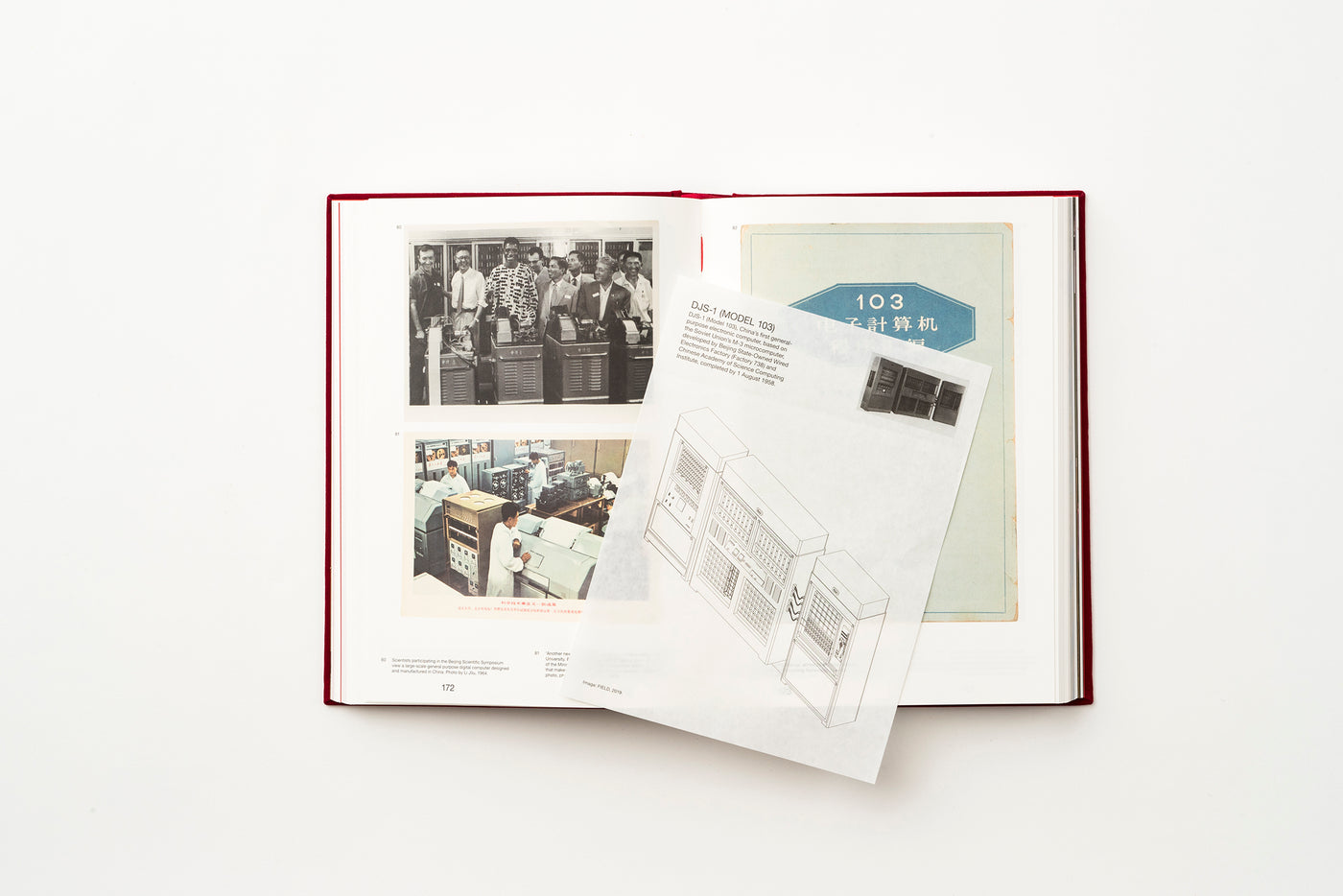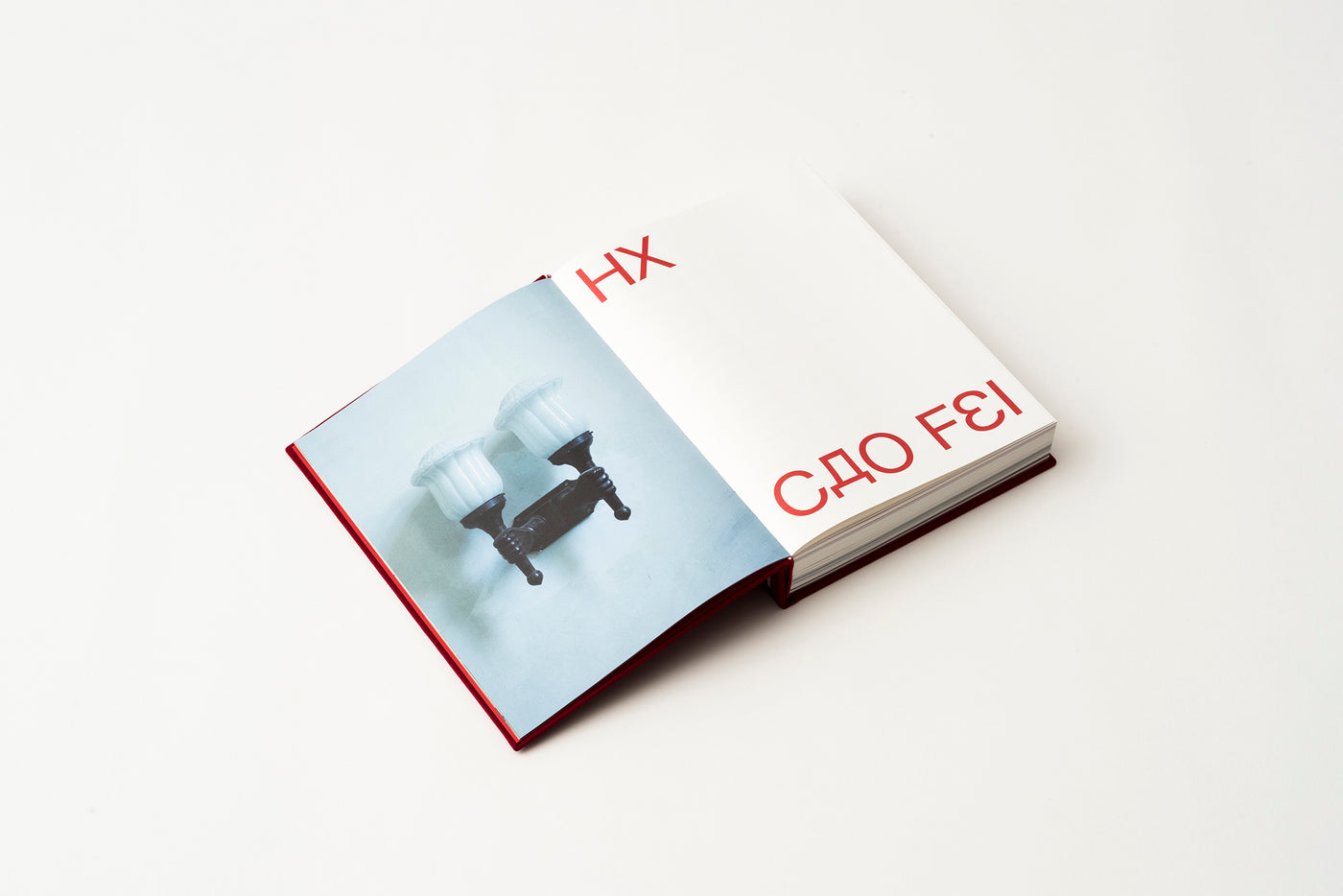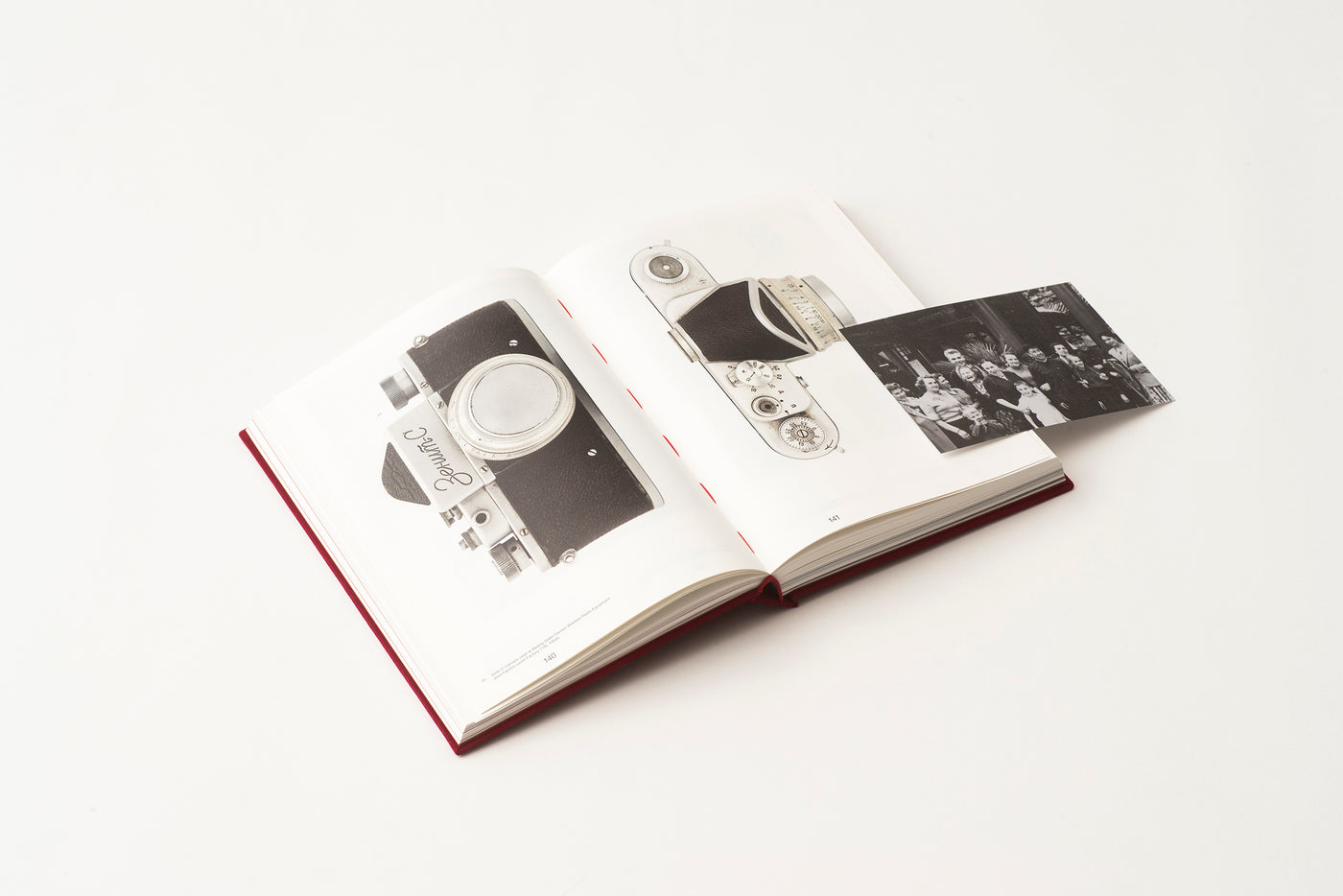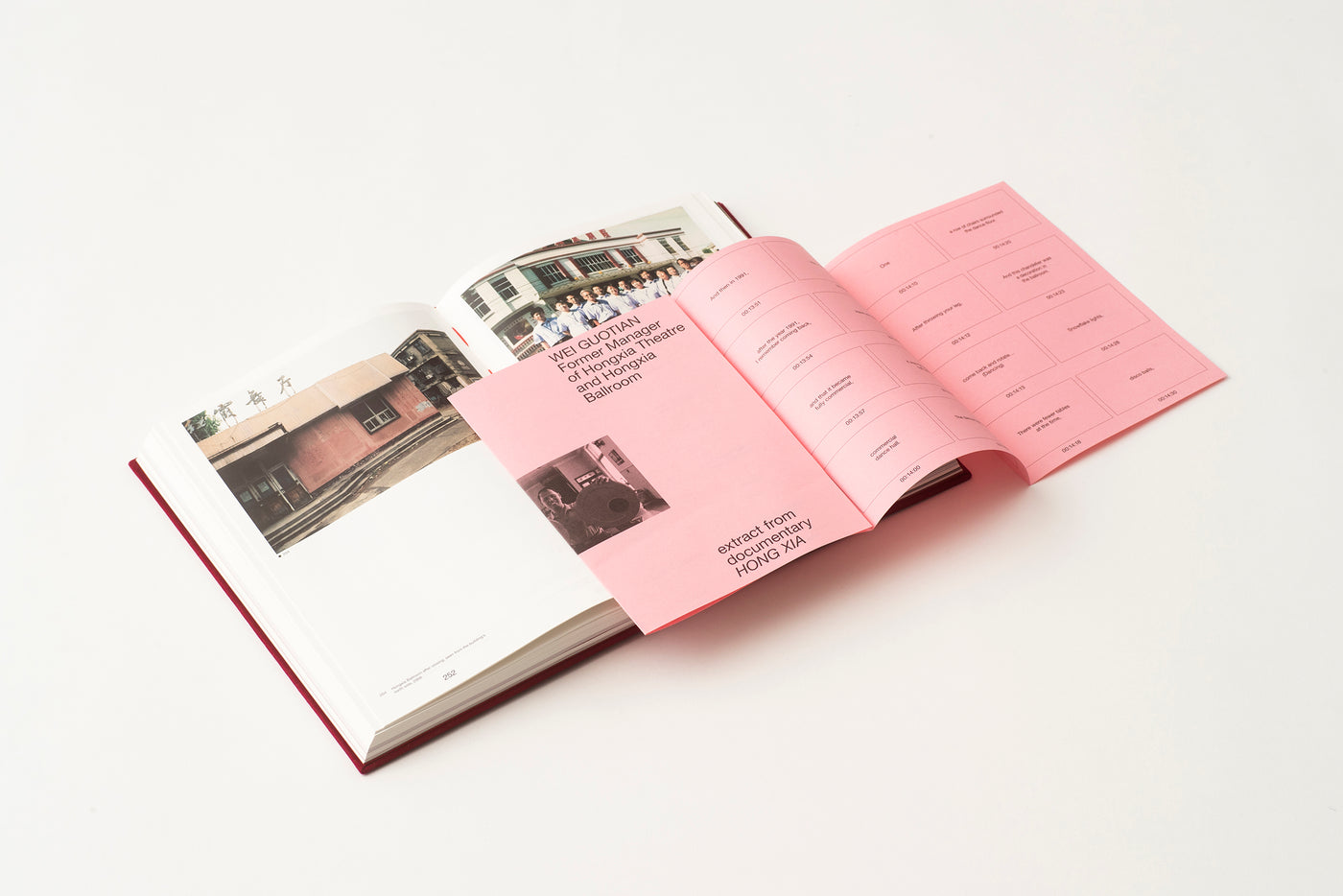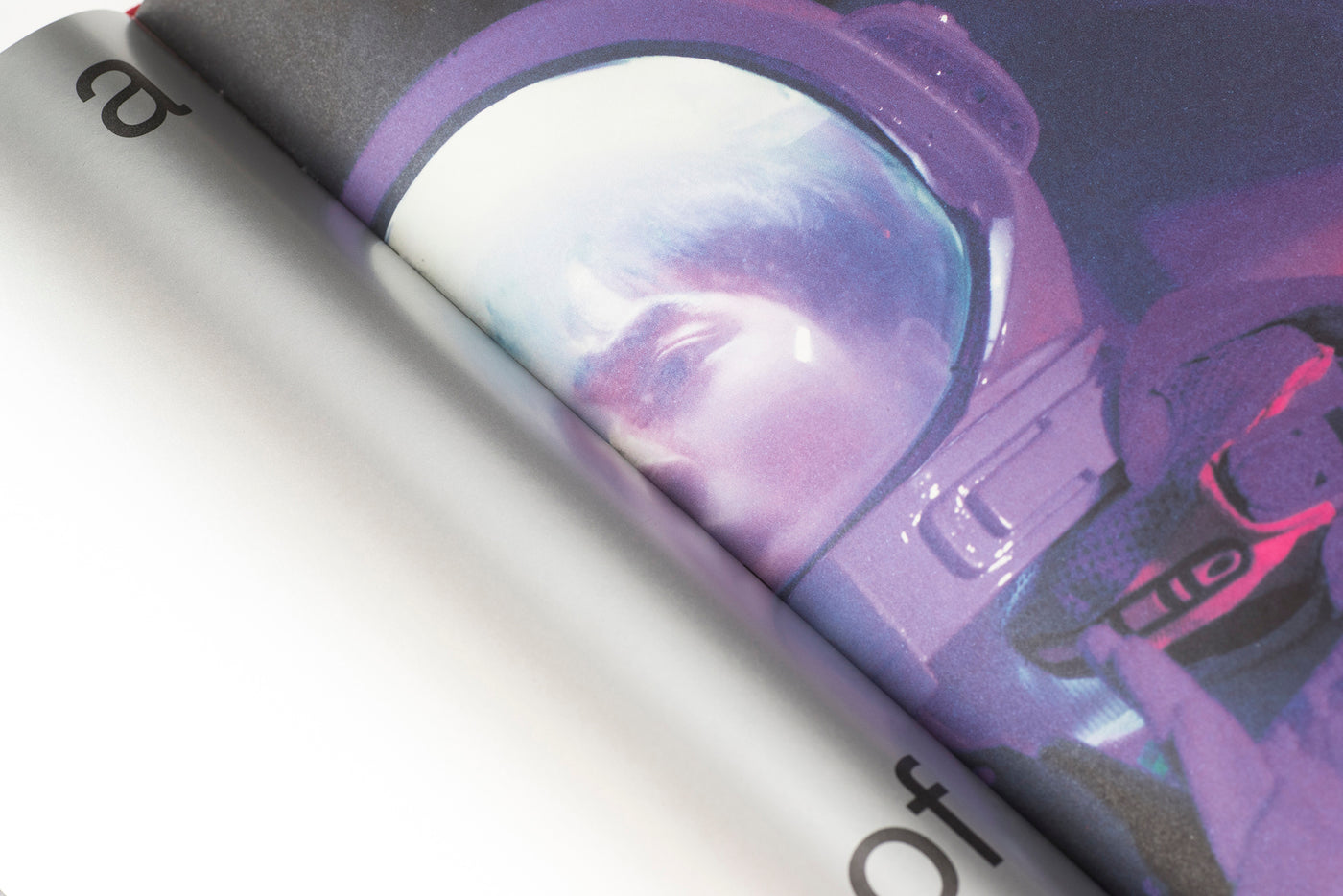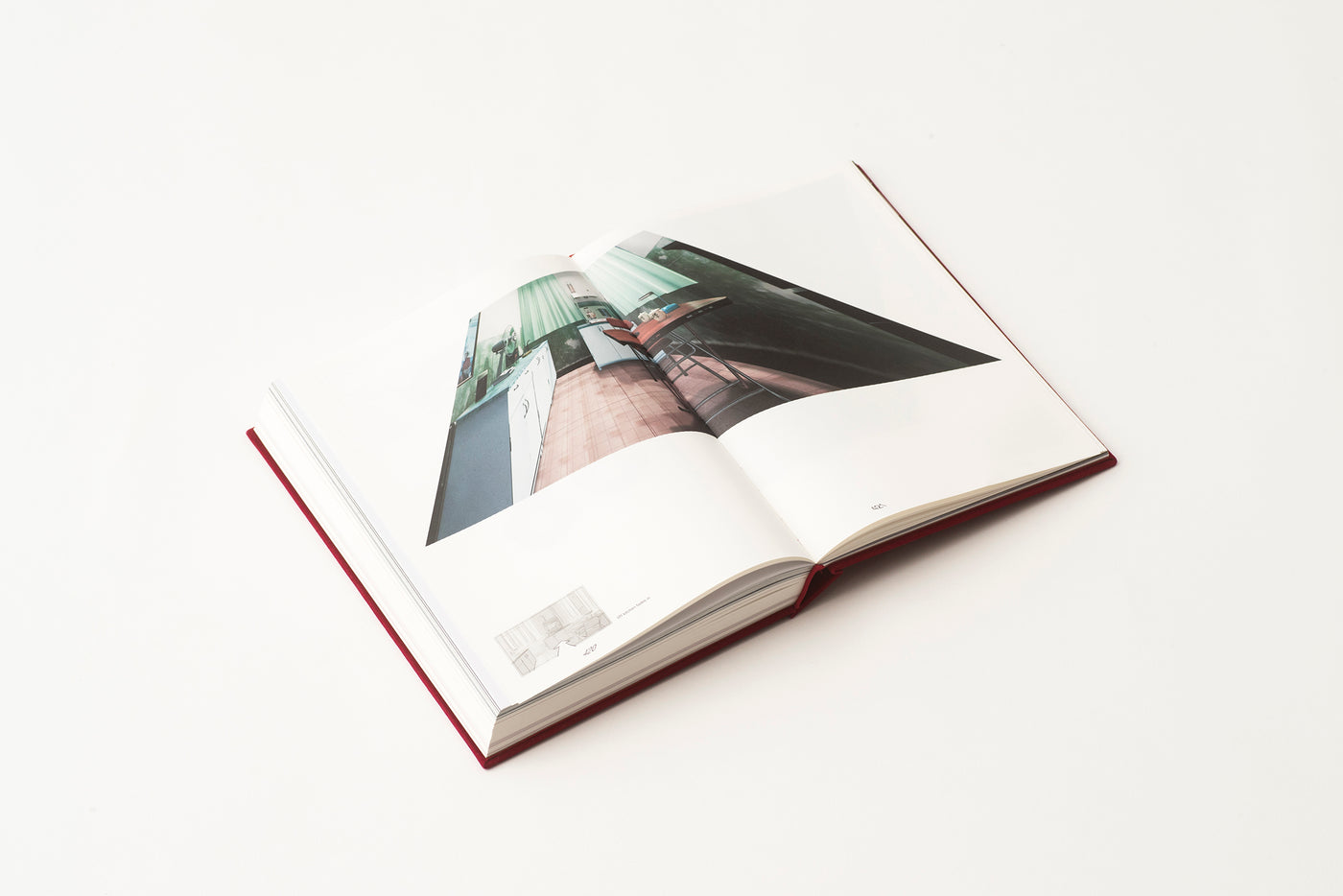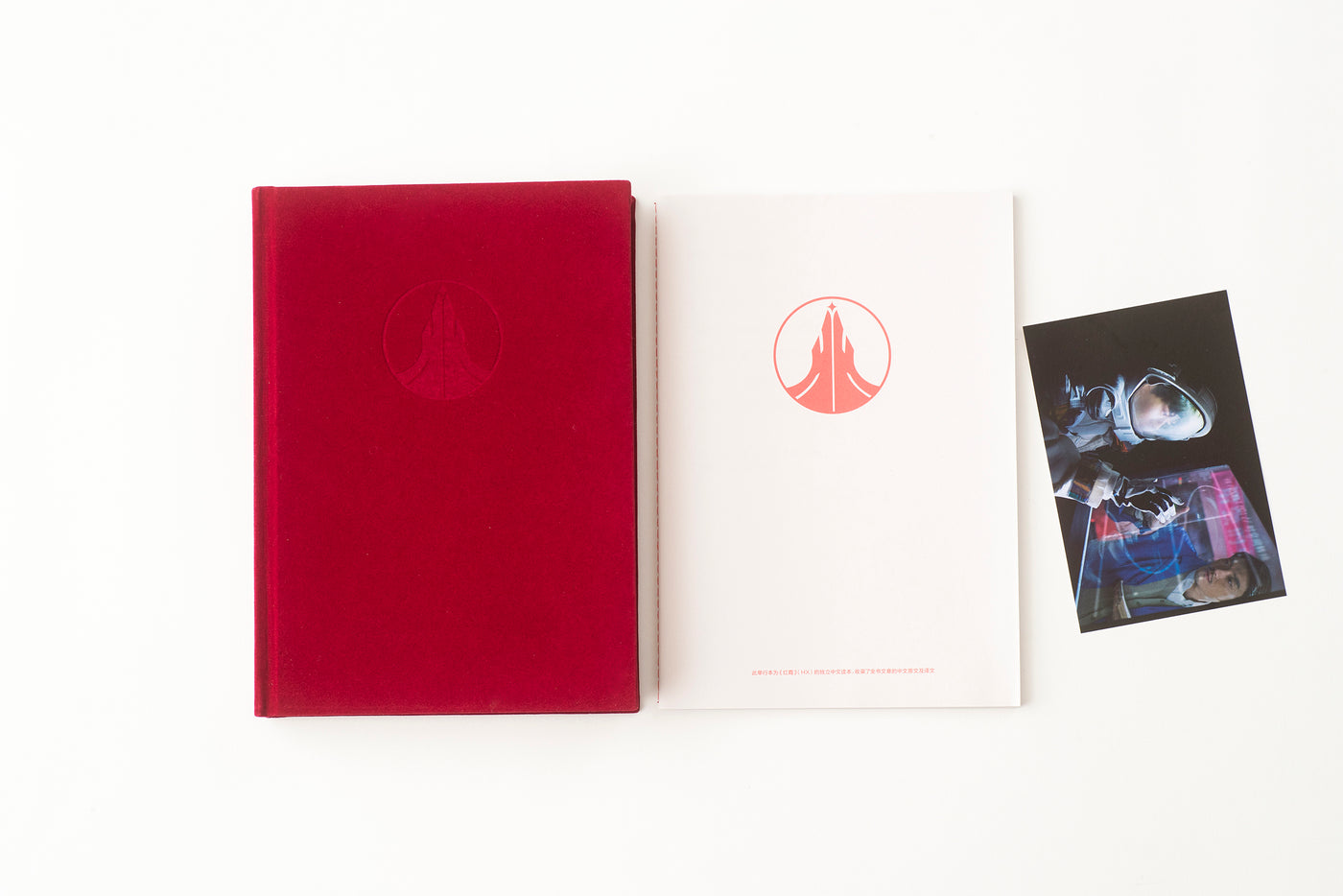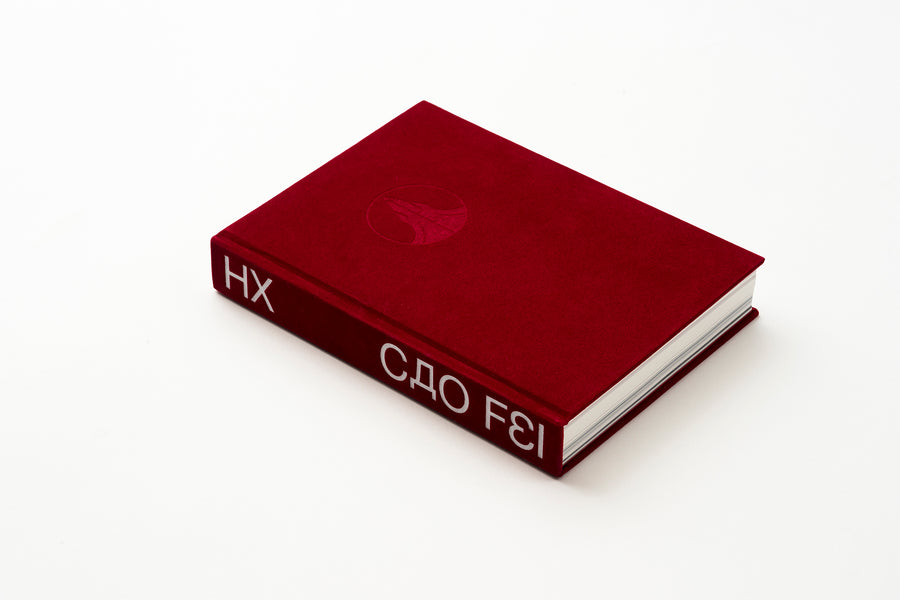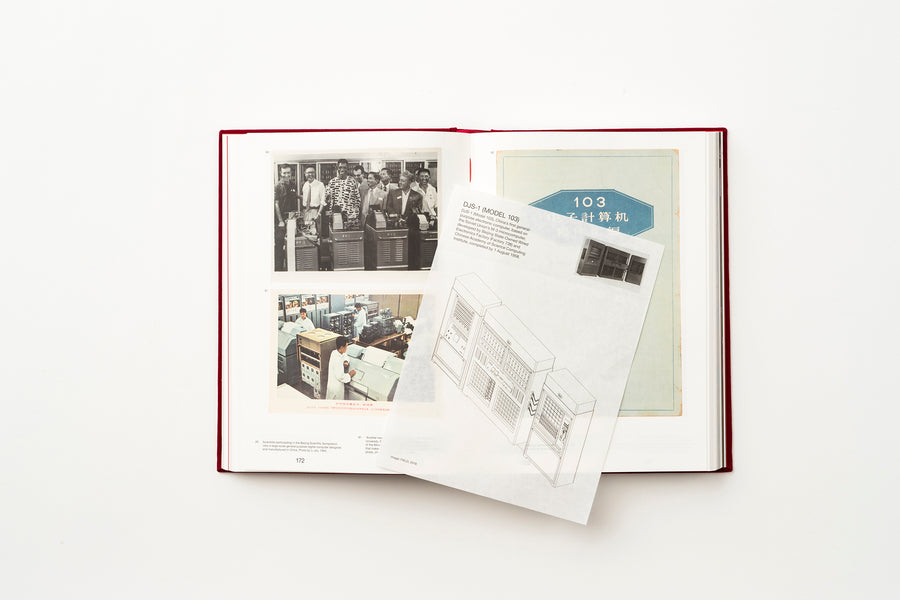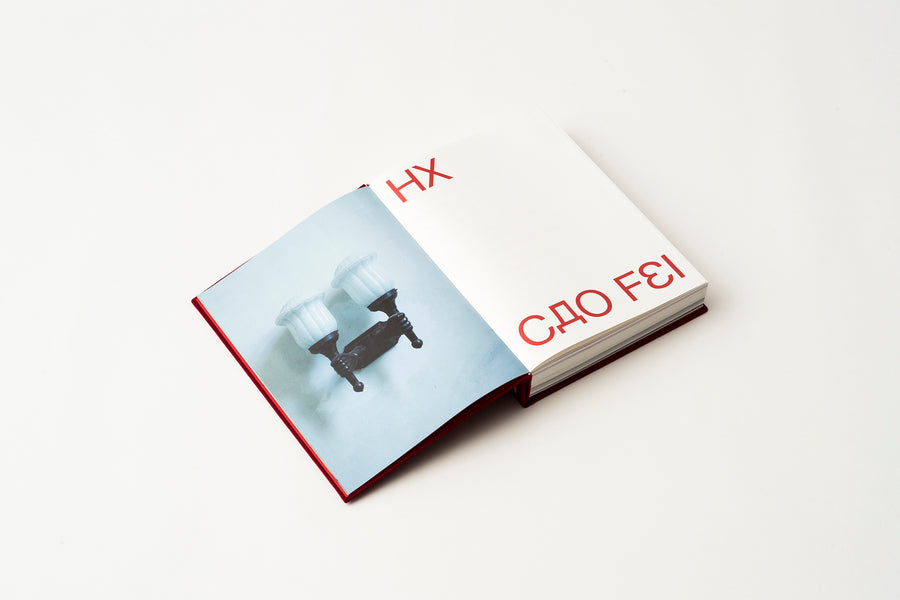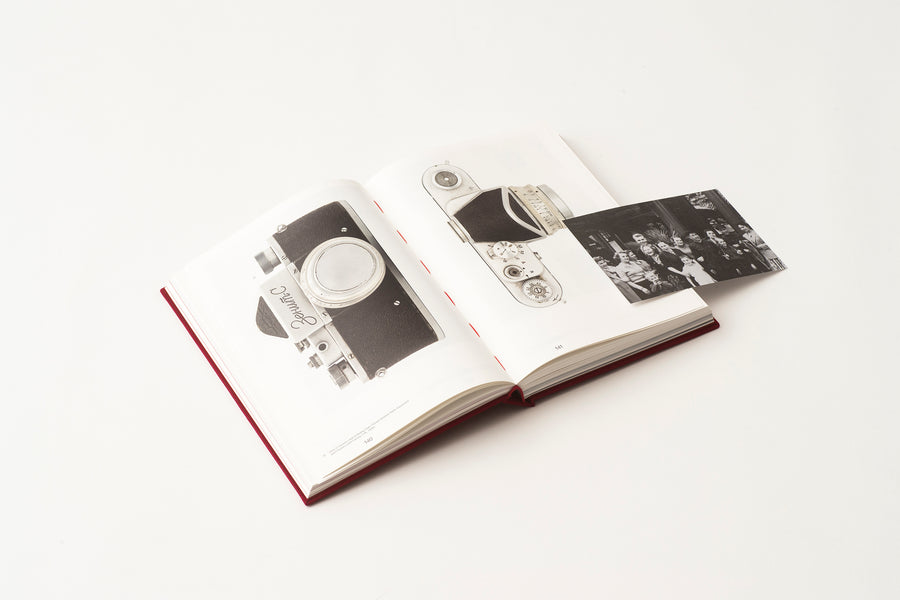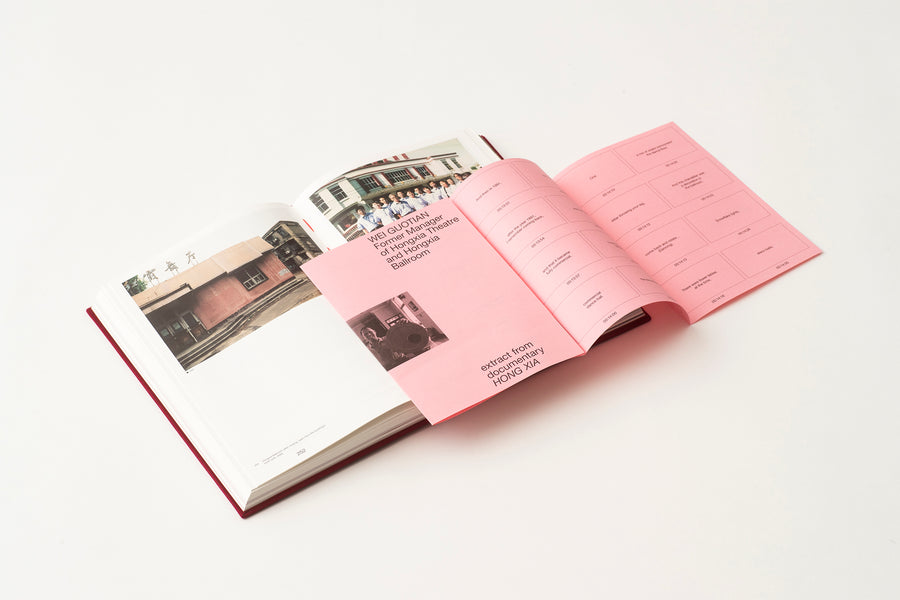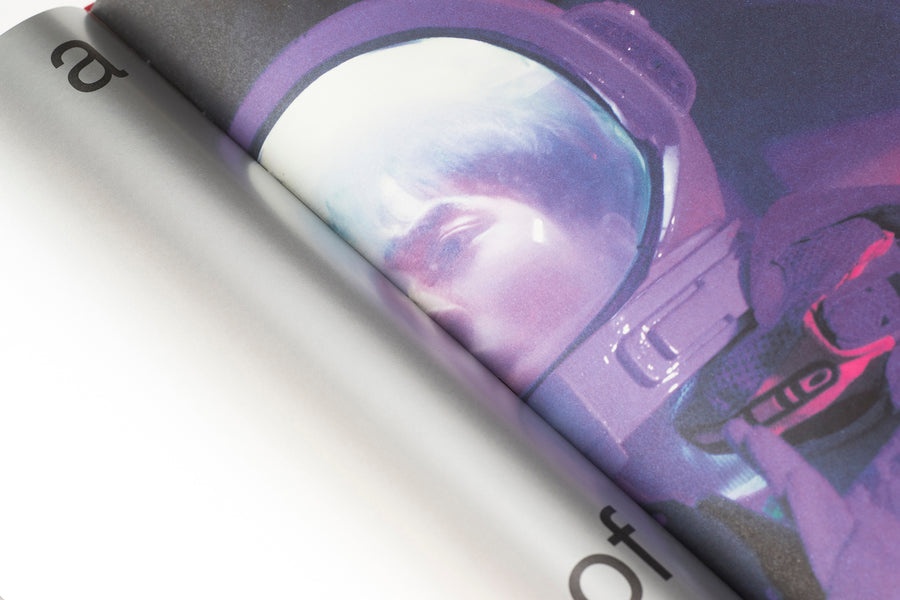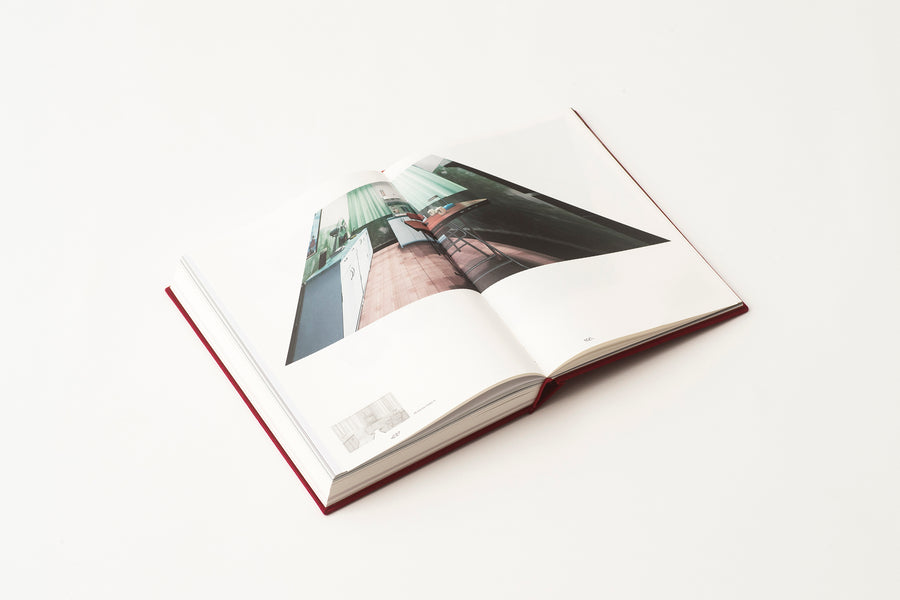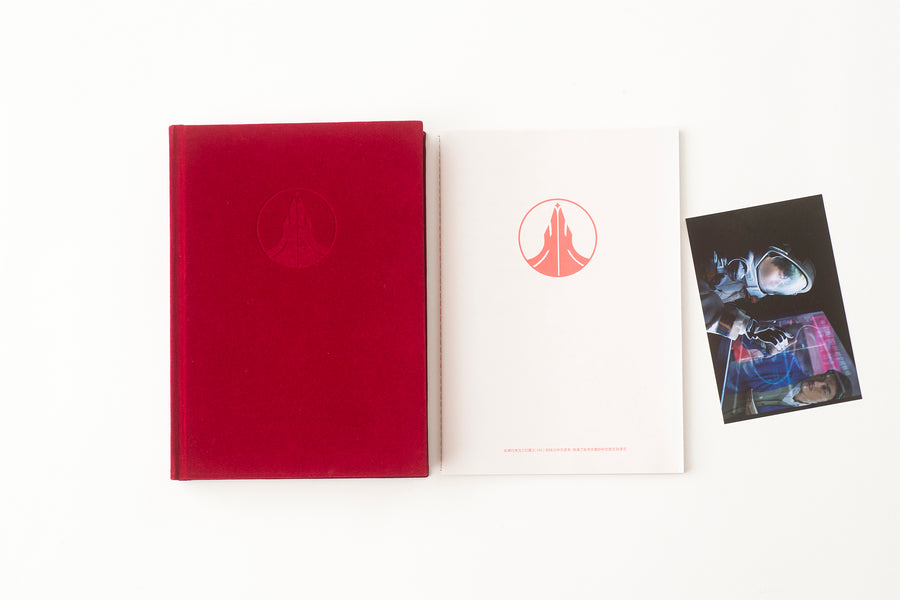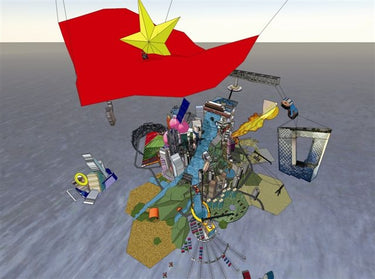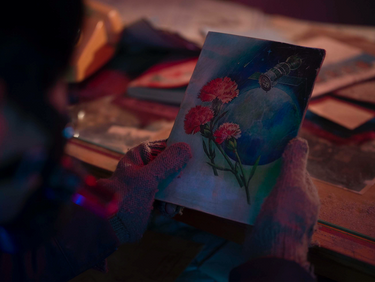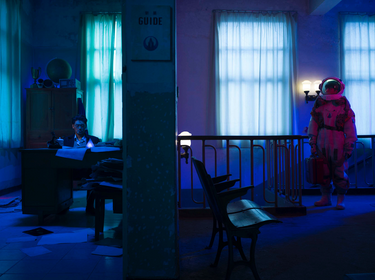HX is published on the occasion of Cao Fei’s exhibition, Blueprints, at the Serpentine Galleries, and forms part of the artist’s extensive research project of the same name developed over several years.
HX takes Cao Fei’s studio, the former Hongxia Theatre, as a starting point, and expands out into neighbouring Jiuxianqiao and Dashanzi Districts. The theatre was built during a period of intense industrial development throughout the 1940s, 50s and 60s, fuelled by the assistance of communist allies in the USSR and DDR, in which Jiuxianqiao changed from a rural area into a conglomerate of factory infrastructures as part of China’s development of advanced electronics – it was here that the first Chinese computer was invented. The Hongxia Theatre was located at the heart of this activity, functioning as a social space until its permanent closure in 2008 in the run-up to the Beijing Olympics. In 2015, following the demolition of her previous studio, Cao Fei came across the theatre and moved in, initiating what would become a five-year research project mining the social and economic histories of this charged space and its surrounding neighbourhood.
Working like an archaeologist, Cao Fei seeks to propose alternative versions of the theatre and its history, as neither the narrative of China’s electronic industry nor the life and fate of an entire generation has ben fully explored until now. The HX project has become an ambitious time-space complex, and the resulting publication developed alongside the project has taken shape over the course of this long-term research.
The publication follows its own logic and rhythm, acting as a counterpart to the artworks that Cao Fei created as part of the project, as well as the exhibition Blueprints. The publication begins with a collaborative text by Serpentine curators Joseph Constable and Rebecca Lewin on the exhibition, followed by a text by Cao Fei. Research-architect, archive editor and writer Jiang Jun considers how China’s modernisation over the course of the twentieth and twenty-first centuries has wavered between dependence and independence from geo-political forces; Research Scholar and Lecturer at Princeton University, Deborah Kaple, has written an introduction to the development of Sino-Soviet relations during the 1950s; Wang Hongzhe, Professor in the School of Journalism and Communication at Peking University, has written an essay on the development of the electronics industry during China’s Great Leap Forward (1958-62); curator and writer Yang Beichen’s text builds upon his research into Cao Fei’s studio, the Hongxia Theatre, and takes the form of a cinematic media-archaeology focused on her film, Nova; Architect Che Fei has written a text that discusses the origin and characteristics of architectural planning during the new collectivism that arose after China’s ‘reform and opening up’ period, and Zhao Song has written a new science-fiction story that bridges the history of Hong Xia and its possible future. The book closes with a new conversation between Serpentine Artistic Director, Hans Ulrich Obrist, Cao Fei and Yang Beichen, which took place at the artist’s studio in spring 2019.
The images selected for this publication are compiled in the form of an ‘atlas’ that creates an alternative narrative: the visual materials originate from the research process of Cao Fei, who has collected them from different resources, including family albums of local residents, illustrations of publications and periodicals, archival materials of institutions, and works of photographers. These visual materials and the texts are interwoven, which renders a montage-like visual rhyme throughout the publication.
HX does not simply function as an artist’s publication, since it has a complex and open structure that corresponds to the irreducible depth of the issues explored. To some extent, HX could be regarded as an intellectual experiment, which transcends the significance of the HX project itself and expands to a wider consideration of the past and its relationship to our contemporary world.
AUTHORS
Che Fei
Deborah Kaple
Jiang Jun
Wang Hongzhe
Yang Beichen
Zhao Song
Hans Ulrich Obrist
Joseph Constable
Rebecca Lewin
EDITORS
Yang Beichen, Editor
Joseph Constable, Editor
Rebecca Lewin, Editor
Miao Zijin, Associate Editor
Ellen Larson, Associate Editor
DESIGNER
Sun Xiaoxi
PUBLISHER
The Pavilion
Serpentine Galleries
(co-publisher)
Size
170 x 240 x 35 mm
Pages
512
© Photo: readsreads.info

